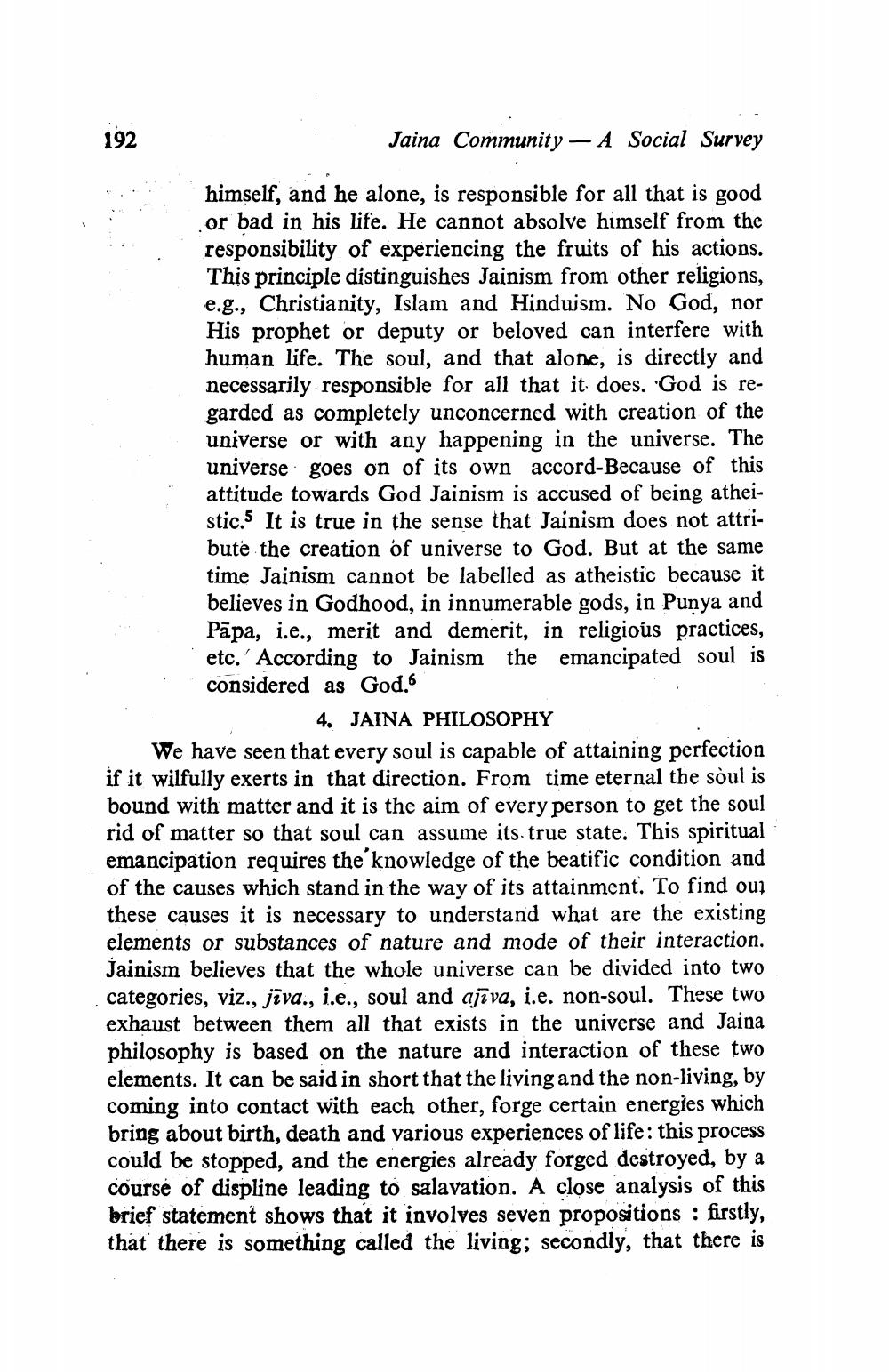________________
192
Jaina Community – A Social Survey
himself, and he alone, is responsible for all that is good or bad in his life. He cannot absolve himself from the responsibility of experiencing the fruits of his actions. This principle distinguishes Jainism from other religions, e.g., Christianity, Islam and Hinduism. No God, nor His prophet or deputy or beloved can interfere with human life. The soul, and that alone, is directly and necessarily responsible for all that it does. God is regarded as completely unconcerned with creation of the universe or with any happening in the universe. The universe goes on of its own accord-Because of this attitude towards God Jainism is accused of being atheistic. It is true in the sense that Jainism does not attribute the creation of universe to God. But at the same time Jainism cannot be labelled as atheistic because it believes in Godhood, in innumerable gods, in Punya and Pāpa, i.e., merit and demerit, in religious practices, etc. According to Jainism the emancipated soul is considered as God.
4. JAINA PHILOSOPHY We have seen that every soul is capable of attaining perfection if it wilfully exerts in that direction. From time eternal the soul is bound with matter and it is the aim of every person to get the soul rid of matter so that soul can assume its true state. This spiritual emancipation requires the knowledge of the beatific condition and of the causes which stand in the way of its attainment. To find our these causes it is necessary to understand what are the existing elements or substances of nature and mode of their interaction. Jainism believes that the whole universe can be divided into two categories, viz., jīva., i.e., soul and ajīva, i.e. non-soul. These two exhaust between them all that exists in the universe and Jaina philosophy is based on the nature and interaction of these two elements. It can be said in short that the living and the non-living, by coming into contact with each other, forge certain energies which bring about birth, death and various experiences of life: this process could be stopped, and the energies already forged destroyed, by a course of displine leading to salavation. A close analysis of this brief statement shows that it involves seven propositions : firstly, that there is something called the living; secondly, that there is




